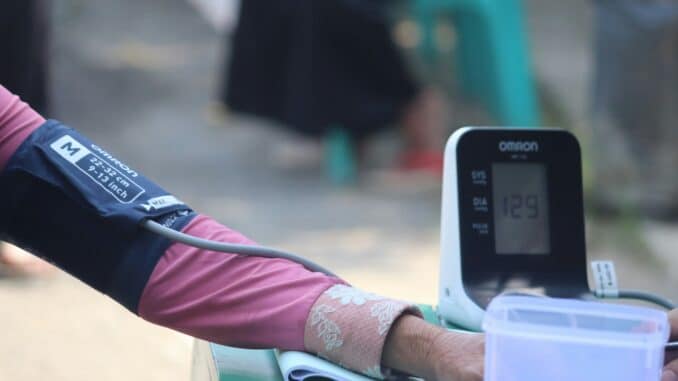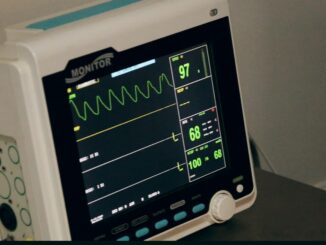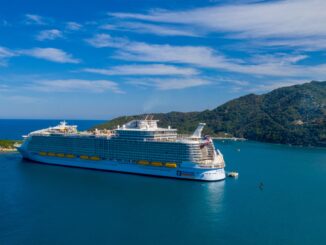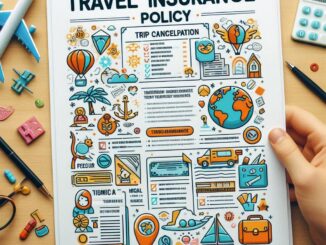
Travel Insurance and High Blood Pressure
Travel insurance for individuals with high blood pressure is available and can be obtained with a bit of research and careful planning.
When applying for travel insurance, it’s important to disclose high blood pressure as a pre-existing condition to ensure proper coverage. If the condition is well-controlled, in many cases, there should be no extra premium to pay to include high blood pressure cover on the travel insurance policy.
Some insurance companies offer coverage for the acute onset of pre-existing conditions such as heart attack or stroke, which can be beneficial for individuals with high blood pressure.
While the cost of travel insurance with high blood pressure may be slightly higher, it is essential to disclose the condition to avoid any claim being rejected.
It’s recommended to explore different insurance companies and their specific medical screening tools to find the most suitable and affordable travel insurance for anyone who has high blood pressure.
Pre-Existing Medical Conditions
In the context of travel insurance, a pre-existing medical condition refers to any health condition that you have been diagnosed with or received treatment for before the effective date of your travel insurance policy.
When you purchase travel insurance, the terms and coverage can vary among different insurance providers. Some travel insurance policies may exclude coverage for pre-existing conditions, while others may offer coverage with certain conditions or limitations.
It’s essential to carefully review the terms and conditions of a travel insurance policy, especially regarding coverage for pre-existing medical conditions.
Some policies may have a “look-back period,” which means they consider your medical history for a specific period before the policy’s effective date. If you have a pre-existing condition, it’s crucial to disclose it accurately during the application process to ensure that you have the right coverage and to avoid potential issues with claims.
Travel Insurance Medical Coverage
Travel insurance policies can vary widely in terms of coverage, and the specific medical coverage provided can depend on the type of policy you choose. However, most travel insurance policies typically include the following medical coverage:
- Emergency Medical Expenses: This coverage helps reimburse you for medical expenses incurred as a result of an illness or injury during your trip. It may include hospital stays, surgeries, medications, and other necessary medical treatments.
- Emergency Evacuation and Repatriation: This coverage is designed to cover the costs associated with emergency medical evacuation to the nearest adequate medical facility or repatriation to your home country in case of a serious illness or injury.
- Accidental Death and Dismemberment (AD&D): Some policies include coverage for accidental death or dismemberment that occurs during your trip.
- Trip Interruption and Trip Cancellation: While not directly medical coverage, these features can be related. If your trip is cancelled or interrupted due to a covered medical reason (such as illness or injury), the policy may reimburse you for non-refundable trip expenses.
- Travel Assistance Services: Many travel insurance policies provide access to a 24/7 assistance hotline. This service can help you find local medical facilities, arrange emergency medical transportation, and provide other assistance in case of a medical emergency.
Medical Screening Questions
When applying for travel insurance, especially if you have a pre-existing medical condition such as high blood pressure, insurance providers may ask specific screening questions to assess the risk. Keep in mind that the exact questions may vary between insurance companies, but most will include the following types of question:
- Diagnosis and Treatment:
- Have you ever been diagnosed with high blood pressure?
- When were you first diagnosed?
- Are you currently taking any medication for high blood pressure?
- Control and Stability:
- Is your blood pressure currently stable and under control?
- Have you had any recent changes in your blood pressure medication or dosage?
- Have you experienced any significant changes in your health or symptoms related to high blood pressure recently?
- Complications and Symptoms:
- Have you experienced any complications related to high blood pressure, such as a stroke or heart attack?
- Do you have any symptoms that may indicate uncontrolled high blood pressure, such as severe headaches or vision problems?
- Hospitalization and Medical History:
- Have you been hospitalized for high blood pressure or any related conditions?
- Do you have any other medical conditions that are related to or affected by high blood pressure?
- Lifestyle and Risk Factors:
- Do you smoke or use tobacco products?
- What is your alcohol consumption?
- Are you following a specific diet or exercise regimen to manage your blood pressure?
- Follow-up and Monitoring:
- How often do you have follow-up appointments with your healthcare provider to monitor your blood pressure?
- Have you had any recent tests or assessments related to your high blood pressure?
-
Underlying conditions: Do you have any other medical conditions related to high blood pressure, such as heart disease, kidney disease, or diabetes? If so, how are these conditions managed?
-
Travel destination: Where are you planning to travel? What are the specific activities you intend to participate in while there? Are there any unique health risks or considerations related to your destination and planned activities.
What is High Blood Pressure?
High blood pressure, also known as hypertension, is a chronic condition that affects millions of people worldwide. It is a major risk factor for heart disease, stroke, kidney disease, and other health problems.
What is Blood Pressure?
Blood pressure is the force of blood pushing against the walls of your arteries. It is measured in two numbers: systolic and diastolic. Systolic pressure is the force when your heart beats, and diastolic pressure is the force when your heart is at rest.
Normal Blood Pressure
Normal blood pressure is considered to be below 120/80 mm Hg. Elevated blood pressure is considered to be between 120/80 and 129/89 mm Hg. Stage 1 hypertension is between 130/80 and 139/89 mm Hg. Stage 2 hypertension is 140/90 mm Hg or higher.
Symptoms of High Blood Pressure
High blood pressure usually does not cause any symptoms. However, if it is not controlled, it can damage your blood vessels, heart, brain, kidneys, and other organs.
Causes of High Blood Pressure
The exact cause of high blood pressure is unknown. However, there are a number of factors that can contribute to the condition, including:
Genetics: If you have a family history of high blood pressure, you are more likely to develop it yourself.
- Age: High blood pressure becomes more common as you get older.
- Obesity: Being overweight or obese can raise your blood pressure.
- Physical inactivity: Not getting enough exercise can also raise your blood pressure.
- Salt intake: Eating too much salt can raise your blood pressure.
- Alcohol consumption: Drinking too much alcohol can raise your blood pressure.
- Caffeine consumption: Drinking too much caffeine can raise your blood pressure, especially for people who are sensitive to it.
- Smoking: Smoking can damage your blood vessels and raise your blood pressure.
- Certain medical conditions: Some medical conditions, such as kidney disease, diabetes, and sleep apnea, can also raise your blood pressure.
Treatment of High Blood Pressure
The goal of treating high blood pressure is to lower it to a safe level and keep it there. This can be done with lifestyle changes, such as losing weight, eating a healthy diet, limiting salt and alcohol intake, and getting regular exercise. In some cases, medications may also be needed.
Prevention of High Blood Pressure.
The best way to prevent high blood pressure is to adopt healthy lifestyle habits. This includes maintaining a healthy weight, eating a healthy diet, being physically active, and limiting salt and alcohol intake.
Safest Way to Travel if you have High Blood Pressure
The safety way to travel for individuals with high blood pressure can depend on various factors, and it’s crucial to consult with a healthcare professional for personalized advice. However, here are some general considerations:
- Car travel: Driving or being a passenger in a car allows you to have some control over your environment. You can take breaks when needed, control the temperature, and make other adjustments to ensure comfort. However, long periods of sitting can contribute to blood pressure issues, so it’s essential to take breaks, stretch, and stay hydrated.
- Train travel: Trains provide a relatively stable and smooth ride compared to some other modes of transportation. They often have more space to move around and may offer better seating options than planes or buses. However, the duration of the journey and amenities on the train can vary.
- Bus travel: Similar to car travel, bus travel allows for more control over your environment. However, long bus rides may involve extended periods of sitting, so it’s essential to take breaks and stay comfortable.
- Air travel: Flying can be a quick and efficient mode of transportation, but it comes with some considerations. Changes in cabin pressure and altitude can affect individuals with certain health conditions, including high blood pressure. It’s advisable to consult with a healthcare provider before air travel, especially for long flights. If flying, remember to get out of your seat and walk around several times during the flight.
- Boat or cruise travel: While travel by boat or cruise can be a relaxing experience, factors like motion sickness, changes in sea conditions, and the duration of the journey should be taken into account. Some people may find the motion of the sea unsettling.
Managing High Blood Pressure when travelling
Here are some general tips for individuals with high blood pressure when traveling:
- Consult your doctor: Before making any travel plans, consult with your healthcare provider. They can provide guidance based on your specific health condition and medications.
- Maintain medication routine: If you’re taking medication for high blood pressure, make sure you take it as prescribed. Bring enough medication for the duration of your trip, plus a little extra in case of unexpected delays.
- Stay hydrated: Dehydration can affect blood pressure. Drink plenty of water, especially if you’re flying, as the cabin air can be dry.
- Limit sodium intake: Try to avoid high-sodium foods, as excess salt can contribute to high blood pressure. This is especially important if you’re eating at restaurants or consuming pre-packaged foods while traveling.
- Regular breaks during travel: If you’re on a long journey, whether by car, train, or plane, take breaks to stretch your legs and move around. Prolonged periods of inactivity can contribute to blood pressure issues.
- Avoid excessive alcohol: Alcohol can affect blood pressure, so it’s advisable to limit your alcohol intake, especially if you have high blood pressure.
- Monitor your blood pressure: If you have a portable blood pressure monitor, consider bringing it with you to check your blood pressure regularly, especially if you’re traveling for an extended period.
- Get enough sleep: Lack of sleep can contribute to high blood pressure. Aim for regular, adequate sleep, especially if you’re crossing time zones.
- Choose stress-free travel options: Minimize stress by planning your trip well in advance, arriving at the airport or station early, and allowing for extra time to account for delays.
- Inform travel companions: If you’re traveling with others, make sure they are aware of your condition and what to do in case of an emergency.
Country Specific Information
When travelling overseas, it is a really good idea to do a bit of research about the country itself, especially information about the country’s healthcare system. This allows you to make a plan in the case of an emergency. Also any information that can affect someone’s stress levels, like types of accommodation, time zones, holiday activities etc.



